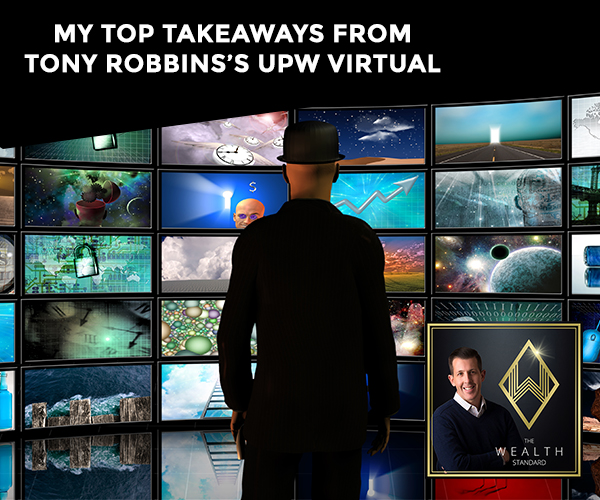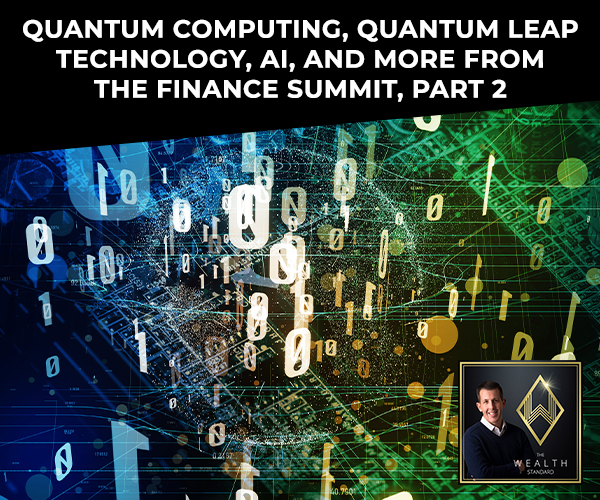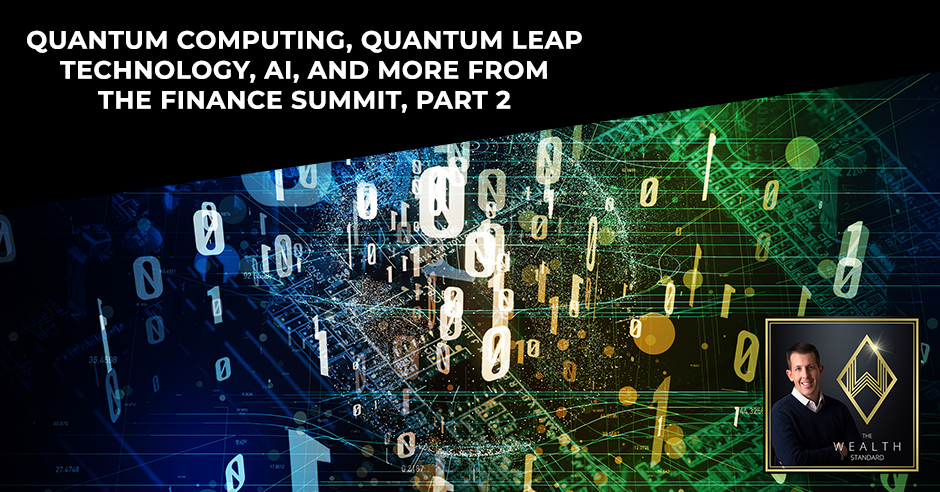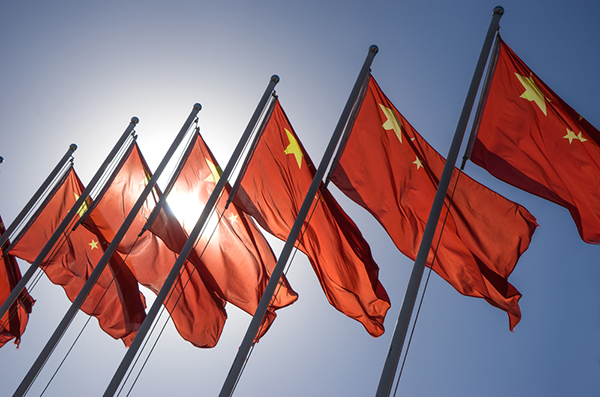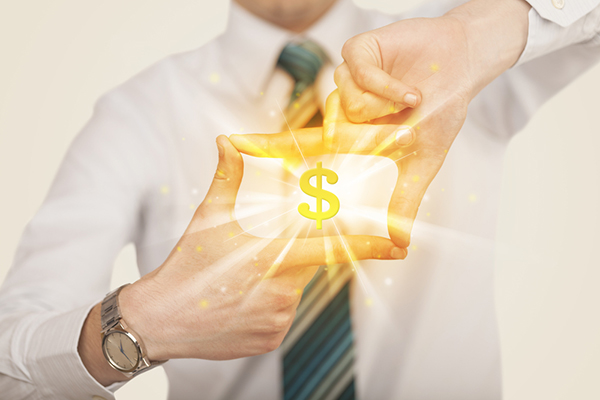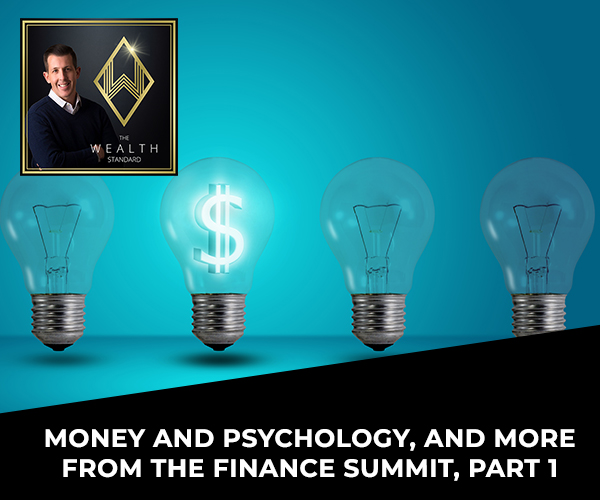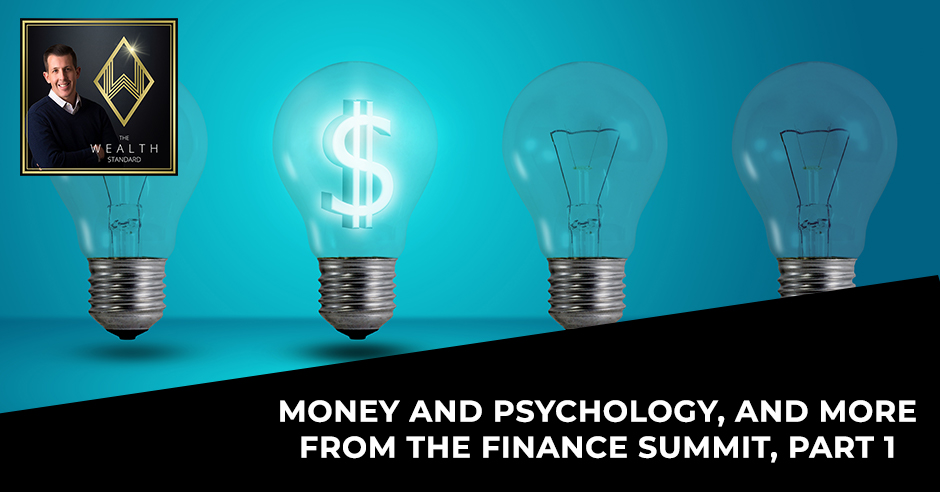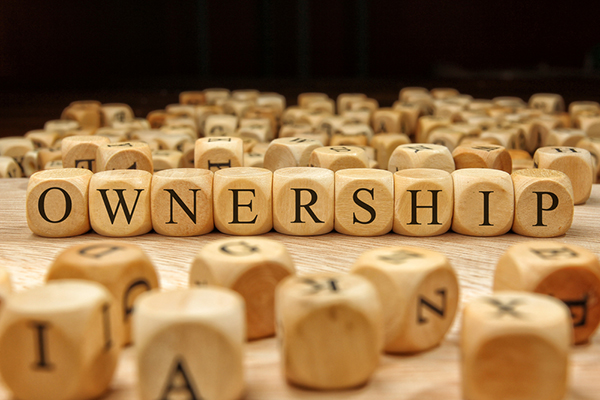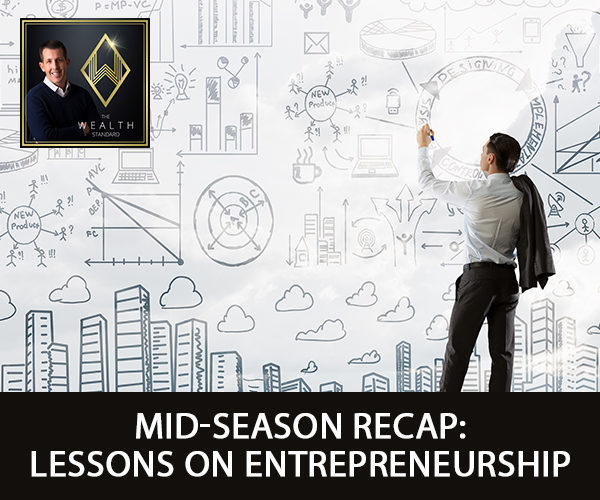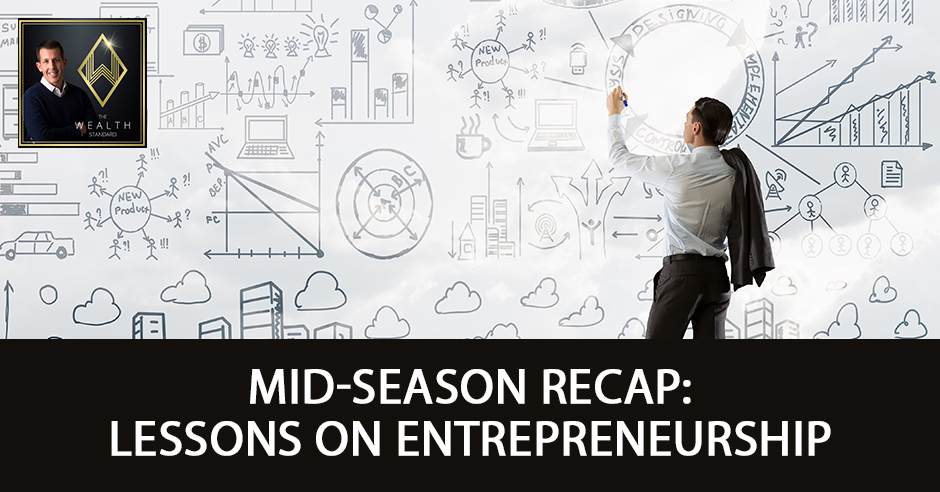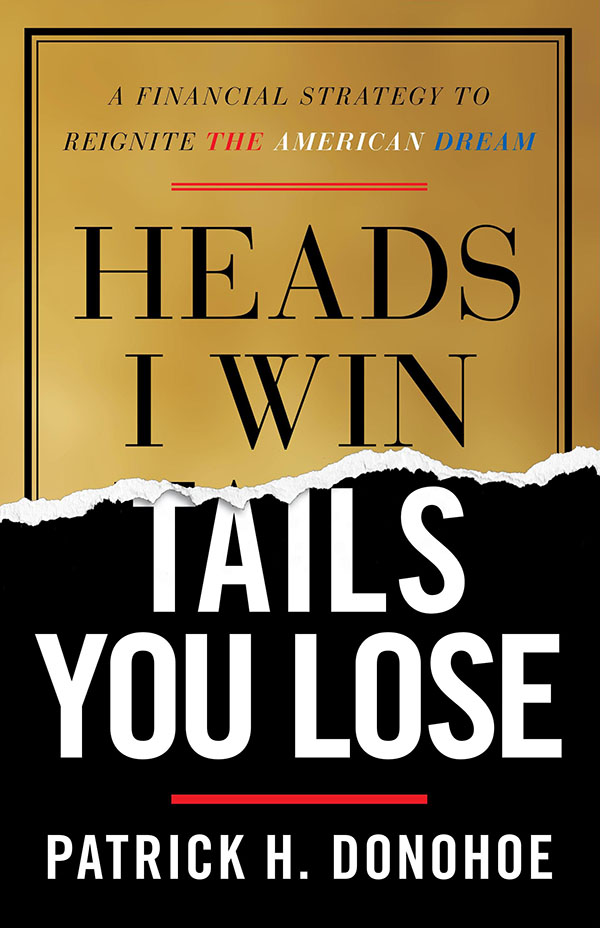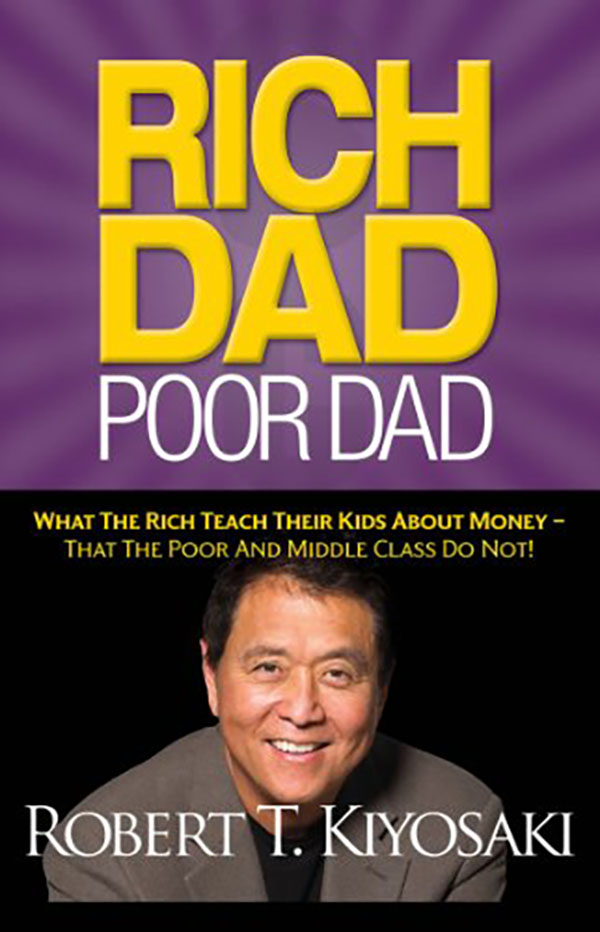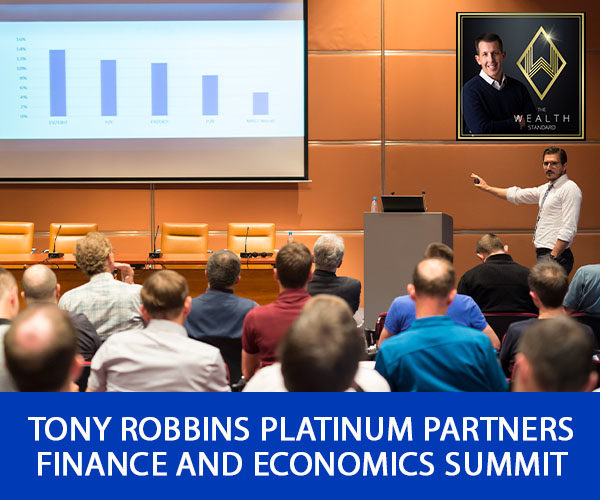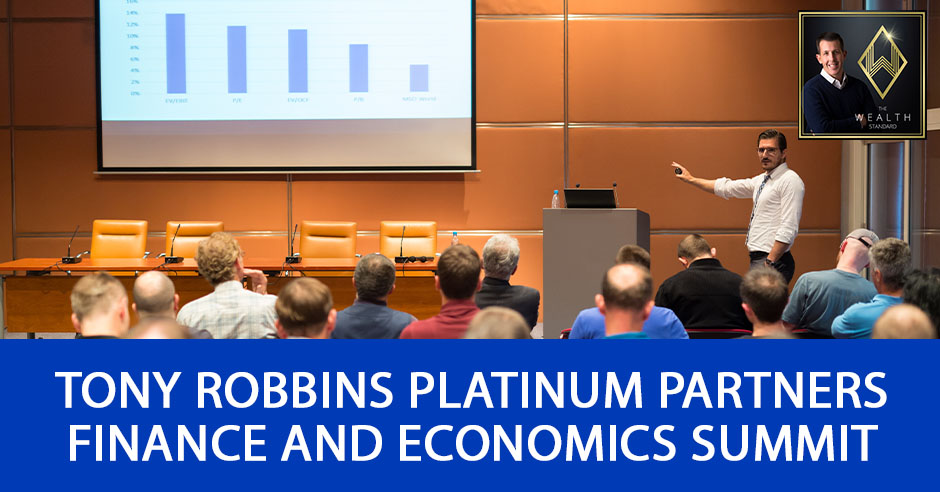My Top Takeaways From Tony Robbins’s UPW Virtual
Podcast: Play in new window | Download
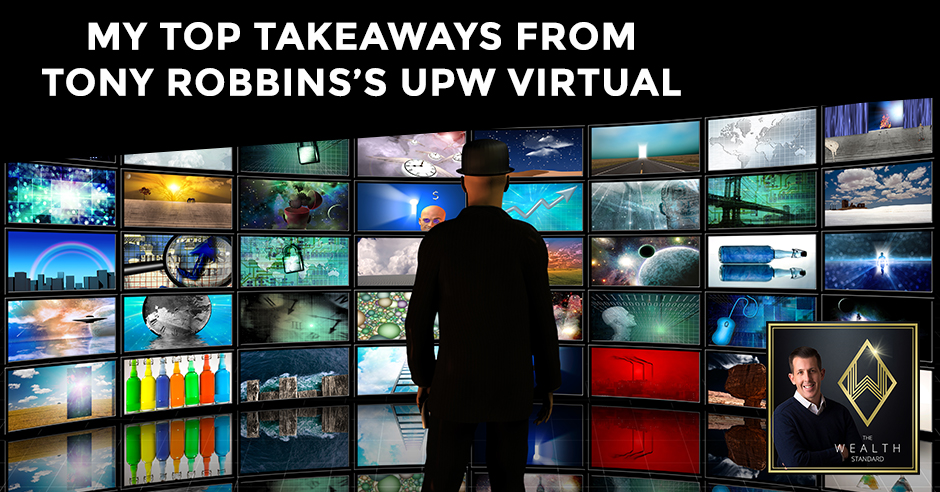
Top-ranked life and business strategist Tony Robbins breaks records in the virtual events space with his groundbreaking Unleash The Power Within Live Virtual 360 Interactive Experience, which teaches thousands of people how to discover their power to break through limitations, overcome challenges and create the life that they want. In this episode, Patrick Donohoe shares his top takeaways from the UPW Virtual, the biggest virtual event ever. Whether you’re in it for your business, career or personal life, there is so much you can learn about creating a successful and fulfilled life. And what better time is there to learn than in these unprecedented times? Plus, Patrick answers a couple of questions concerning the Federal Reserve and the stock market. There is so much you can take away from this short but compact episode. Don’t miss it!
—
Watch the episode here:
Listen to the podcast here:
My Top Takeaways From Tony Robbins’s UPW Virtual
I hope you guys are well. I know we’re in rough times. I hope you’re gaining some insight and motivation from the show to help navigate these waters and find some fulfillment, joy, and gratitude as well as opportunities to grow and be even more successful. I wish you guys the best. This is what I’m going to talk about. It would be important to note this upfront. I’m going to get into the top four things I took away from Tony Robbins’ UPW Virtual. It’s the biggest Zoom call, virtual event ever done. There were 24,000 people there. Tony had this 360 screen that went all the way around. It was incredible. I had a great experience. I’m going to share four things there.
At the end, there’s a couple of questions that came in through social media and YouTube that I’d like to answer. The first one was based on the interview that Andy Tanner and I did, which is, how do you go about studying the Federal Reserve System? The second question related to the stock market and came from one of the Richard Duncan interviews, which was, what is the Federal Reserve going to do if the stock market crashes? Thank you guys for being here. Thank you for supporting me. Thank you for taking the time to learn, grow, and take the steps necessary to take your life to the next level. I’m going to first get into a few recommendations that I have before I do the Tony Robbins thing.
There’s a company/app that I started using in 2008, 2009. It’s more like the end of 2009, 2010. It was a company called Lexington Law. Lexington Law was one of the first credit repair companies out there and their platform, system, and model are amazing. I know with job loss and with the crazy times that we’re in, credit is getting crushed. Credit monitoring and credit repair, these guys have the best. Credit these days is here to stay even though they change and adapt a little bit, it’s the objective way whether it’s mortgages credit, business credit, getting hired, or renting, credit is almost a necessity of good credit. Staying on top of it, even though I have a perfect credit score now, I still maintain monitoring because identity theft is still prevalent out there. Staying on top of it is also important.
They have some Credit Monitoring Services as well as Credit Repair Services that I still take advantage up to this day. Incredible company. They’re here in Utah and they’ve been around the longest. From my experience, it’s incredible. If you guys need that service, definitely check them out. The second thing is a new app that my wife and I started using, which is You Need A Budget. I have an accounting staff here for the business. I have bookkeepers that do some of the other business stuff that I have in investment, but for personal cashflow, it’s between my wife and I. You Need A Budget is one of those apps that has continually improved. It’s so easy to use. We use it all the time, it helps to identify money going out, and opportunities to be more efficient with that. Check them out as well.
Let’s get into what I took away from the Tony Robbins event. First off, for those of you reading for a while, I invited you guys all to come to the live UPW in San Jose. There was going to be one in Chicago neither are happening. Tony tried to reschedule and find that city. Finally, it was like, “Nothing’s going to open. It’s not going to happen.” That realization opened up a space for him to innovate and create a new level and precedent for virtual meetings and conferences. This meeting was amazing. There were people from all around the world. He had a 360 screen with people’s faces on there. I’m not sure from a visual standpoint. I probably wasn’t able to sleep because of all that light for that long.
I had this 360 screen. You guys can check out. Some pictures are all over social media and YouTube but it was a great event. I’ve been to a number of these events. The dynamic was different at the same time, the content and the experience was very similar and incredibly effective. He’s doing it again in November 2020. I’d like to invite all of you guys. This is something that allows you introspection and breakthrough. I have not found it possible in other areas of life unless you get fired, have a rough time, and your breakthrough happens to happen because of terrible pain, frustration, anxiety, depression. When you’re at the bottom, breakthrough usually happens.
This is a way that you can do it proactively. I know there is a lot of unemployment claims that are almost 40 million. You have all sorts of major companies filing bankruptcy every day. It’s a rough time. This is a time where innovation and solutions are the biggest opportunities ever yet. That is the paradox, during the times when nobody wants to innovate and they’re scared for their life to innovate is the time to innovate. This is an event that helps you understand yourself at a deeper level. Make sure you bookmark that. It’s virtual. You need an internet connection and you have to use Zoom but it’s amazing.
I imagine it is going to be even better because there were some quirks and some things I got kicked out a few times. At the same time, it pushed the limits of Zoom and I believe it’s going to be even better. For those of you who are business owners, entrepreneurs, investors, Business Mastery, which is also in an event I’ve attended a number of times and it has changed my business and finances. You guys have heard about it on the show a number of times, both directly and indirectly. Business Mastery is incredible and that’s going to happen August 19th through the 23rd, 2020. I can’t wait for that. It’s going to be incredible to see how he does everything virtually.
My UPW Takeaways
If you’re a business owner and investor, check that out. Here’s what I learned from UPW. These are things that I have maybe talked about before or the things that I heard and understood to an extent, but because of where I’m at in life, it’s always different when you consume information, especially in a good heightened state. You think about it differently and it makes more sense or it connects with you at a deeper level. The first thing I learned or had some breakthrough with is the Science of Achievement. Science is the ability to show reason as far as why something has become as an outcome. I look at achievement.
You're more likely to get what you want and achieve what you want if you are already fulfilled by what you have. Click To TweetThe desire for achievement is within everybody, even if they don’t say that it is. People are naturally compelled to grow and to get to the next level, which is achieving a new level and then a new level, and it never stops. The Science of Achievement is to understand the method behind what is achieved and you do. It gets a little complicated detailed but I would say the easy way to explain it is, identify what you want first. It sounds self-explanatory but people have an idea of what they don’t want. They don’t know exactly what they want. Sometimes, people describe what they want as what they don’t want. I don’t want that. I don’t want to be poor. I don’t want to have this career for the rest of my life.
Identify what you want then it’s going about discovering those that have achieved that and hopefully more. When you’ve discovered that person, organization, etc., it is the study of their method and their method could be a mindset, routine, or language. There’s a number of things but I’ll use an example of losing weight or bodybuilding. Having a certain physical appearance as well as internal energy level. The idea is first to identify what you want, then you look at the science behind someone who’s achieved it. It could be, how much sleep do they get? What time did they go to bed? How do they prepare for sleep, so they get a good deep sleep and allow their body to repair itself at the highest level?
What do they do with their exercise routine? How do they prepare? How do they eat? What are the portions? Why did they choose those portions? You get into the science and study what it is you want to achieve. It’s been done before. We live in a shortcut society so everybody wants the pill or the quick fix, but the science of achievement has a method to it. The method is step-by-step, formulaic. It’s understanding that from someone who has achieved it and trying to embody what they do from how they speak. It comes down to what you want to achieve, but I’ll go back to the physical side of things.
How do you speak about yourself? What are the routines you take in the morning, the day, or the afternoon? How much time do you spend here? How much time do you spend there? Understanding that allows us to start to connect to, I’m not doing that? I’m going to do 70% of these things. Start to chip away at what I want. That’s the Science of Achievement. You identify what you would achieve, 99.9999% of what you most likely articulate has been achieved. It comes down to identifying the person group who’s achieved it and breaking down their methods, mentality, perspective, philosophy, and starting to compare.
The next thing is the Art of Fulfillment. This comes to the next paradox that I mentioned a moment ago. The Art of Fulfillment sunk in because of quarantine and the shutdown. I discovered that there was a certainty that I wanted with regard to my business, traveling, and this is on the calendar. We’ve done this, prepared for this, planned for this. Is it going to happen? I don’t know if it might happen. It frustrated me and a number of different instances. The idea of fulfillment comes down to, regardless of what’s going on around you, achieving what you want, getting what you want, or things being the same. It’s to be grateful, appreciative, and fulfilled as if nothing changed.
Now, I mentioned that we’re compelled to change and grow but the Art of Fulfillment, and this is why it’s an art, it’s different for everybody is to find ways in which you can appreciate how things are. You can appreciate what you’ve already achieved. You can appreciate and be grateful for all the things around you. Here’s what’s interesting. There’s a book called Letting Go by David Hawkins and it talks about the science of letting go, the science of art of fulfillment, and I’m so grateful where it essentially frees up space and energy so that what you do want to achieve is more likely interesting. You’re more likely to get what you want and achieve what you want if you are already fulfilled by what you have. I connected to that and started to appreciate who I am, what I have, and all the things to be grateful for around me.
It’s amazing what that does. Tony uses the example of Robin Williams. Robin Williams being one of the most loved people on planet earth, amazing actor, achieved all sorts of levels in his career, yet he never figured out fulfillment and that’s why he killed himself. The idea is, I’ll sum it up in a quote that he often uses which is, “Success without fulfillment is the ultimate failure.” Those are the first two things. The second thing is the Success Curve. The success curve is there’s also in economics, something called the S curve. It’s not the same but the S curve and success curve is first starts out as growth. Most people that study finance and wealth have heard and understand the compound interest that interest, earning interest, etc.
Most people don’t understand that the nature and tenants of compound interest. They look at this linear thing which, “If I earn 8% and 8% and 8%, and I earned it over the course of 50 years, I’m going to be this.” Life is not linear. Life does not happen like that. No tree grows to the sky. Just as much as in nature, there are things that stop at a certain level and then innovate at that level. The same thing happens with success and economics. I was in Montana and you had these trees that fell almost onto the river. You could see how it was bent over because the roots were sticking out, but yet it still stayed in place and didn’t fall in the river.
The trunk started to grow straight from that point on. This is the idea of success curve as well as innovation in economics or an economy. We’re seeing it all around us. We’re at the going down piece of the compound curve. Society and markets have grown. Things have gone up and there’s so much pressure on it not going up based on the same principles that got it there. That’s why you’re starting to see declines. This happens in our personal lives, nature, economics, markets, and society where you grow based on certain principles, and then it starts to decline. From a personal and success standpoint, you plateau. What gave you satisfaction before no longer give you satisfaction.

UPW Virtual: Identify what you want first, and then look at the science behind someone who’s already achieved it.
It’s Parkinson’s Law, which is a luxury experienced soon becomes a necessity. How many people take for granted driving where people had to be on a horse or walk before flying? There’s so much we experience in life that was at one point a miracle and now it’s like, “Whatever.” If you look all around us, there are miracles. There are miracles everywhere but yet, the satisfaction of what we experienced initially as a miracle loses its luster. The success curve is understanding and anticipating that, but then also recognizing that in order to S it, instead of collapsing, S curve is innovation. You start to plateau then you decline, but then you innovate and find better ways of doing things, it starts to go up, then it becomes an S curve again, so on and so forth.
That’s the nature of things if you can anticipate. Instead of things collapsing all around you, it’s understanding what worked before no longer works. I have to innovate in order to continue to grow. That’s what I learned. Tony learned it as well because he kept wanting to do things the way he had done them before. He wanted to UPW Live. He wanted to do business mastery Live. You wanted to do all these events Live in person because of the incredible dynamic and experience it is for everybody, including himself. He can’t do that anymore. Now it becomes, instead of going down, I’m going to innovate and go up. He’s going to crush it. This set a whole new precedent for virtual events. It pushed Zoom beyond its limits. I guarantee it’s going to be much better the next round as far as these new virtual events. I’m excited for that.
A couple of the final things, and then I’ll get into some of these questions. Anticipation and momentum. When I talked about anticipation, it is knowing what I’m talking about and what I now realize is important to life and my satisfaction as an individual. I’m assuming yours as well and anticipating that these things are going to happen. They’re already happening. Now is an incredible opportunity to step back, reflect, and start to implement these principles. It’s anticipating that it’s going to continue to happen in the future. Looking at how we emotionally react to things, of course, we’re not going to look at this, which is logic.
We’re not going to look at this and instantly be able to implement it. It’s balancing the emotional and logical side of our brain and our makeup. Anticipate in the future is understanding the principles behind navigating water, as opposed to 100% jerk reaction, emotionally responding, or reacting to things, and then momentum. Momentum in physics, you have elasticity, the maintenance of momentum. Inelasticity is where you or the momentum declines. In order to get back up to the level where that momentum was, it takes way more energy than the amount of energy that left going down.
Look at losing weight, working out, or getting in shape. If you are in the peak shape of your life and you take 2 to 3 weeks off, you’re not going to go back to normal. It takes longer than three weeks to get back to normal. The idea is maintaining as much momentum as possible. There isn’t much momentum anywhere in society because people have been forced home. They’ve been forced in a sense to do certain things differently because people don’t have the certainty of what gave them fulfillment, success, a good experience in life before, now, you have to find new ways of doing it. The more momentum you lose in every area of life, the harder it is to get back. It’s the maintenance of momentum.
On Stock Market And The Fed: Questions Answered
Once you get there, it’s not losing that momentum. If it goes down, it’s recognizing it and then doing what it takes because you anticipated what it takes and understands the principles of what it takes to catch yourself and build back up. Those are the four things I took from UPW, Unleashed The Power Within. I didn’t attend all of it. I attended some of it on a couple of hour bike rides, but at the same time, I’m committed to going to November 2020 and playing full out. I hope you guys can join me. I’m going to get to a couple of questions as I said or answers the questions and then we’ll wrap up, but thank you guys for being here. Thank you for learning and support. Let me get into the questions.
How do you study how the Federal Reserve works? I first looked at this question. I was like, “Do they want to know how the Federal Reserve works or they weren’t the ones to learn how to study it?” I’m going to touch on both. The Federal Reserve means central banks around the world play an instrumental role in society and the economy. Hope you guys got that from the Richard Duncan interviews. To study how it works, I’d first want to look at understanding the fundamentals. We referenced in the video I did with Andy Tanner, How The Economic Machine Works, which is a video by Ray Dalio. I’ve watched that a bunch of times. In watching that, this is the best way I study and understand something which is preparing to teach it and then teaching it. I would teach it in five-minute segments and teach it to somebody that is somewhat familiar with it and then get their feedback.
In the teaching, you are going to realize some of the voids in what you understand or don’t understand. That is one of the best ways to study is by teaching and discussing. Form of a little Facebook meetup, teach it, understand it, do a watch party, watch How The Economic Machine Works together, start to see where the voids are, and how you understand it. Hopefully, you’re able to see the forces that are already in motion, and as one builds and other shrinks, it influences the outcome of markets, prices, interest rates. All of it is tied together. All talk is generally about a central bank. This is dating back several years and it’s a very Austrian free-market perspective.
A Federal Reserve central bank creates currency out of thin air. It is monetizing assets, which is mostly debt. What that means is that the Federal Reserve can create, let’s say $1 billion electronically and then purchase debt. It purchases a loan that either wasn’t there before or it’s purchasing it from somebody who already owned it. What that does is it manipulates the true price of the debt, which is ultimately a risk. It manipulates the price of assets because that money didn’t exist before. When you look at free markets, efficiency, innovation, as I said before, when things decline, go out of business and fail, that is not a bad thing. That is an incredible opportunity to innovate. I believe what the central banks are doing. European Central Bank has announced that the US central bank and central banks around the world are doing the same thing as the Federal Reserve, which is they created money out of thin air and gave it to people.
You have to innovate in order to grow. Click To TweetWhat that did is it flooded society with money that was not earned. That’s what I consider the immoral side of things because money is a receipt of value. When money comes without any value created, that’s not a natural transaction. There has to be an exchange. At the same time, that’s not how our system works. That’s what the point of talking about the Federal Reserve, their role in society and the economy with Richard Duncan. From general principles, freedom, and liberty perspective that I have, looking at how things should be is not going to get me anywhere. It’s not going to be valuable to anyone because it’s not how it works. It may be how it should work but it doesn’t work that way. I look at what Richard was promoting, which is paying attention to what the Federal Reserve does and the central banks on what they do.
If they’re purchasing these assets, those assets are most likely going to go up. If they’re stimulating here and stimulating there, it’s creating artificial signals that ultimately are going to come home to roost. Let’s go back to Kodak. Kodak, who surprisingly enough invented the digital camera. They created a business out of it which they didn’t, they got crushed because others create a business out of it but the government was like, “Kodak, you’ve paid us lots of taxes. You’re going down and we’ll give you more money.” Kodak is not going to do anything different. They’re going to continue to operate and they’ll have more money.
Ultimately, when the money dries up, then Kodak is going to have a massive bankruptcy and failure. They had a bankruptcy in a smaller failure at scale if they were stimulated. Right now, what you’re seeing is that people are being given money. Businesses are being given money but yet you still have tons of businesses that are going bankrupt. What’s amazing is I look at a lot of the businesses that are going bankrupt. Let’s look at retailers. JCPenney is a great example. Retail eCommerce has consumption in that method has gone up significantly.
It’s crazy, yet retailers are going bankrupt. It’s not necessarily the business. It’s how business is done. I believe that the way in which people consume and goods are created to consume is not at scale. It’s at a very micro level compared to before. That’s awesome because it’s creating a new way of doing things, which creates efficiency, variety, and different jobs in different areas. I look at when things fail. It’s not a bad thing. Going through the central bank, what it does is it produces false signals. When you realize that it’s producing false signals, you want to look at the unintended consequences. You want to look at, “If they’re giving money to an institution, economy, and society, there’s a band-aid effect there.”
It’s one of those like, “Is it a band-aid because they’re talking about another stimulus and another one.” This goes to Parkinson’s Law and you’re going to have this decline in productivity. This decline in personal responsibility because people are being bailed out. I’m not saying that there isn’t cause and importance in understanding that for a short-term thing, but when it becomes a long-term thing, it’s not healthy and there’s going to be unintended consequences. That’s my take on that. I would love for you to follow up on whoever is the question I answered, but teaching how the economic machine works is what is going to allow you to study the principles of the Federal Reserve and central banking around the world at a much deeper level.
The second question and I’ll end with this, which is, what if the stock market goes under? Is the Federal Reserve or central banks going to bail it out? There are two parts of this but this came from the Richard Duncan interview which Richard said. He would not be surprised if the Federal Reserve Act changed. In the Federal Reserve Act, parameters as far as what the Federal Reserve can stimulate is what they can buy. It started out as setting interest rates and now, setting interest rates by doing huge bond-buying with government bonds treasuries, government debt. They’re doing municipal, corporate bonds, even junk bonds.
They’re getting into the private sector, which is interesting but from an equity standpoint, they can’t buy equities and stock to my knowledge. If the stock market goes down, are they going to buy the stock? I don’t know. The stock market can’t go under. The premise there we first have to address, what if the stock market goes under? Our modern society is dependent on the stock market. It’s where businesses are scaled where they’re financed. I don’t see how the stock market could go under without society going under. If that goes under then none of what we’re talking about from a financial standpoint is relevant.
I look at first off removing that premise that the stock market is going to go under. Is the stock market going to have challenges? 100%. It’s going to have huge challenges because you’re artificially stimulating and creating false signals. There are a lot of companies that are public that got stimulus. You have companies that are propped up. A big thing that I’ve talked about on the show before is stock buybacks, where you have businesses that will take on debt. They’ll issue new debt and then they will buy their own stock with that because of supply and demand. It keeps the stock price high.
That was illegal through Glass-Steagall, which came about through the Great Depression and the stock market crash then. As you’re able to now stimulate business’ Fed buying debt, you’re going to prop up their value and then artificially have a stock price. There’s going to be businesses that are going to innovate through this and we’ll make out well given the stimulus. There are some businesses that if they keep doing what they’re doing and their business relies on artificial stimulation, which it’s money that they get but they did not create the value to get it, there’s going to be challenged. There’s going to be opportunities there. I know several opportunities where you have some entrepreneurs who are buying assets. I think JCPenney and Hertz are part of it.

UPW Virtual: Money is a receipt of value. When money comes without any value created, that’s not a natural transaction.
I’m not going to go into what bankruptcy is. Bankruptcy is not a company going out of business. I’ll talk about it briefly. Bankruptcy is when a business restructures. When they’re able to go into receivership, which means all their assets, everything they owe, everything they own goes into receivership and then a receiver, a bankruptcy trustee will split up assets, they’ll sell, and get whatever they can. Entrepreneurs right now are buying up a lot of those business assets that are incredible with online marketing, with eCommerce. They’re going to freaking crush it. They’re buying assets at huge discounts, taking those assets, using modern marketing and commerce principles to improve and maximize those assets. There’s a tremendous opportunity as businesses go bankrupt, shuffle the deck, and you have very intelligent capitalist entrepreneurs that are optimizing the assets that were not optimized by the companies that held them before.
The last thing I’ll comment with Richard Duncan in equities. He alluded to the Fed bailing out equities being on the stock market. I want to put it past. I wouldn’t be surprised if that happened. It’s going to exacerbate the problem. It’s having an awareness of what’s happening, being able to anticipate the future and make decisions accordingly. That’s all I talk about. I appreciate your time. Thank you for sticking with me. Hopefully, those answers made sense. Go onto our YouTube channel, make comments there, social media, I’d love to hear from you guys. Email us as well at Hello@TheWealthStandard.com.
If you are interested in Tony Robbins’ Business Mastery, check that out. Go to the UPW, Unleash The Power Within in November 2020. For me, it is been the best investment of time. It’ll be a couple of $100. What you’ll be able to create and degree of happiness you’ll have as a result of it, fulfillment, you’re going to love it. Hopefully, you guys can put that on your calendar and make the necessary steps to attend that and benefit from it. Guys, you’re amazing. Thank you for your support. I appreciate you reading the blog. We’ll see you guys. Take care.
Important Links:
- Richard Duncan – Previous episode
- Lexington Law
- You Need A Budget
- Letting Go
- How The Economic Machine Works – YouTube
- YouTube – The Wealthy Standard
- Hello@TheWealthStandard.com
Love the show? Subscribe, rate, review, and share!

